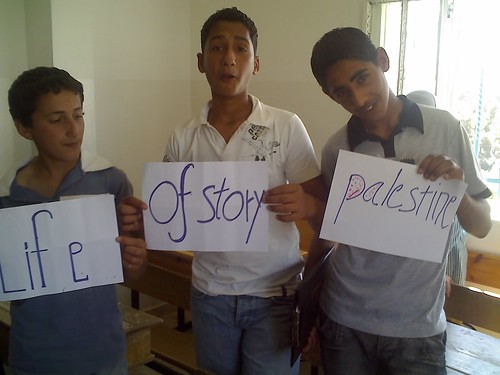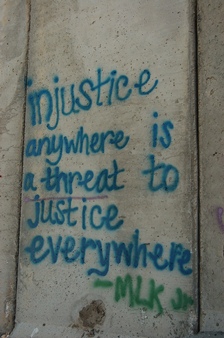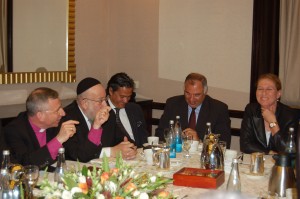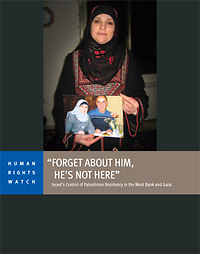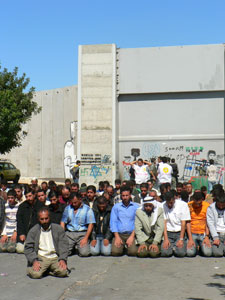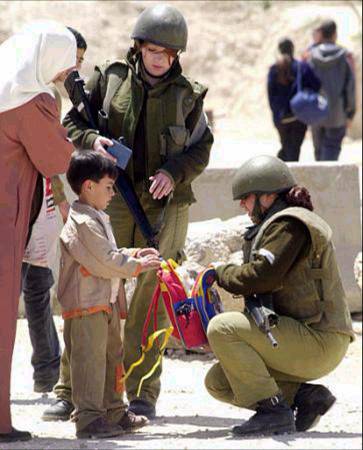I want to share with you a poetic reflection shared by Aisea Taimani, one of the leaders in the 99 Collective, a young adult led movement of the Church that seeks to practice and struggle for radical hospitality for all people. Aisea was providing some perspective on the Kony 2012 controversy, with a link to this excellent piece on the Sojourners blog, titled “Who’s Telling the Story.” Here is Aisea’s comment:
if you simplify my story…
you miss out on the beauty of its complexity.
if you sensationalize my story…
you miss out on…
me.
BE QUICK TO LISTEN!
s l o w t o s p e a k.
and if you tell my story,
please tell my version, my narrative, my truth.
when you do, you give meaning to my existence.
The Kony controversy and Aisea’s poetic plea is important for a broad variety of engagements with our complex world. Those of us outside the Middle East who have become involved in efforts to respond to the Israeli-Palestinian situation must take time to reflect on the question of who speaks for whom.
This question came to the fore over the past week or so with the Wall Street Journal’s publication of an editorial by Michael Oren, Israel’s ambassador to the United States. The piece, titled “Israel and the Plight of Mideast Christians,” asserted, in effect, that Muslims are targeting Christians for persecution throughout the Middle East, including in the West Bank and Gaza. The editorial then pivoted to suggest that this Islamic persecution, rather than the policies and practices of the Government of Israel, is the primary cause of Palestinian Christian suffering.
The next week, the Journal published four letters responding to Oren (including one from me). The basic theme of the letters—two of which were from Palestinian Christians—was that Oren had neglected the perspectives of Palestinian Christians themselves. Oren seeks to establish his standing to share Palestinian Christian perspectives by noting his past work as an Israeli government adviser on inter-religious affairs and his encounters with Christians in that role. As the content of the letters attest, however, these experiences in Oren’s past have not led him to communicate in ways that, according to Aisea, “give meaning to” Palestinian Christian existence.
As a representative of the Government of Israel, Oren carries immense power. In his attempts to shape American perceptions of the Israeli-Palestinian situation (the Journal regularly publishes his editorials), Oren is assisted by the best researchers and the most sophisticated wordsmiths within the government and an array of organizations committed to defending the prerogatives of his state. These “experts” work assiduously to frame the boundaries of acceptable inquiry, even as they appropriate Palestinian Christian research and perspectives to their own cause (even to the point of ultimately silencing excellent Palestinian Christian studies on their community’s demographics like those found here and here. Oren’s editorial is an exercise of state power against the interests of a population made more vulnerable by that state’s own actions.
While not as obvious as that held by a state ambassador, most of us involved with the Peace Not Walls campaign are tempted to wield power in similar ways. Every time we tell the story of Israelis or Palestinians (or, for that matter, Syrians or Egyptians) most of us are representing another person’s story. And that representation is an exercise of power.
To work toward justice, it is often necessary to tell another person’s story. As Proverbs tells us, those who have power are called to “Speak out for those who cannot speak, for the rights of all the destitute” (31:8). The three pillars of the Peace Not Walls campaign—Accompaniment, Awareness-building, and Advocacy—each depend on building solidarity and empathy through engagement with human stories. Telling other people’s stories is necessary. The question, though, is HOW those of us who have power choose (and the ability to choose is the essence of power) to tell that story.
Are we telling their story to advance our own agendas? Are we telling the stories to help ourselves feel better about ourselves, so we can distance ourselves from other forms of power? Are we placing our companions (the ones who have asked us to share their stories) at the center of our narrative? Are we doing justice to them and their suffering?
Our news media are filled with examples of those who hold power using other people’s narratives to advance agendas aimed at preserving power. Even if we are not accustomed to acknowledging our power, our efforts to engage in solidarity with persons more vulnerable than ourselves must practice the discipline of being “quick to listen and slow to speak.” And in this we will see glimpses of the New Heavens and the New Earth.

